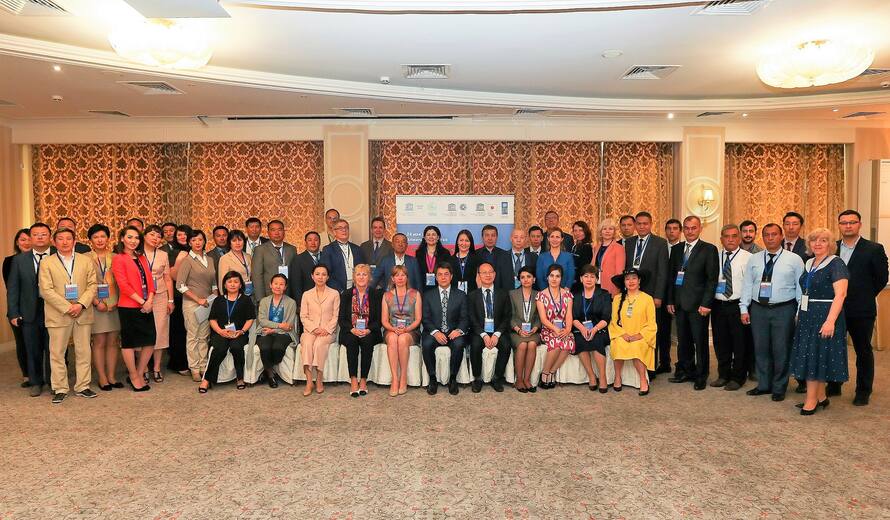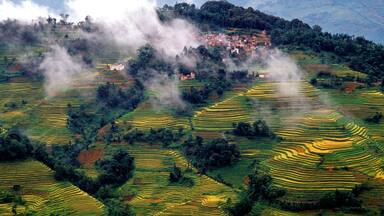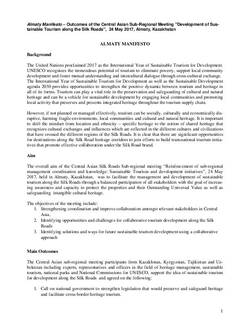Almaty Manifesto on Sustainable Tourism Adopted During Silk Roads Sub-Regional Meeting
The Central Asian Silk Roads sub-regional meeting “Reinforcement of Sub-Regional Management Coordination and Knowledge: Sustainable Tourism and Development Initiatives”, was held in Almaty on 24 May 2017 and fifty participants attended.
The participants came from Kazakhstan, Kyrgyzstan, Tajikistan and Uzbekistan, and included experts, representatives and officers in the field of heritage management, sustainable tourism, national parks, along with representatives of the National Commissions for UNESCO, UNESCO, UNDP, UNTWO and international resource persons from China and Australia.
This year’s Almaty Meeting is especially relevant as the United Nations proclaimed 2017 the International Year for Sustainable Tourism for Development. The United Nations General Assembly noted that “the importance of international tourism in fostering better understanding among peoples everywhere, in leading to a greater awareness of the rich heritage of various civilizations and in bringing about a better appreciation of the inherent values of different cultures, thereby contributing to the strengthening of peace in the world”. In addition, the promotion of sustainability is aligned with the context of the 2030 Agenda for Sustainable Development.The participants of the Central Asia sub-regional meeting supported the idea of Sustainable Tourism for development along the Silk Roads. The Meeting was successfully concluded with the adoption of the Almaty Manifesto, which addresses a number of issues related to Sustainable Tourism and Sustainable Development. The participants notably agreed on the following:
-Call on national government to strengthen legislation that would preserve and safeguard heritage and facilitate cross-border heritage tourism;
-Guarantee a balanced approach between safeguarding, conservation and promotion of cultural and natural heritage, and to ensure that visitors do not degrade or damage this heritage, but significantly contribute to the conservation and development of this heritage to the benefit of the local communities;
-Recognize the need for wide awareness raising and capacity-building amongst administrative local bodies at all levels and in all sectors;
-Recognize the needs for wide awareness raising amongst population, especially young people, about this common heritage;
-Strengthen new opportunities for State, public and private sector partnerships as well as inter-organization agencies coordination, in particular to promote heritage sites as part of the Silk Roads Heritage corridors.
-Design a marketing, branding and promotional strategy to establish an attractive and professional brand for the Heritage Corridors and provide comprehensive information for visitors via online and communication mediums as well as brochures and publications;
-Strengthen coordination and cooperation among the countries of Central Asia, as well as other Silk Roads countries on the promotion of the Silk Roads heritage tourism using the existing platforms of UNESCO and UNWTO.
This sub-regional meeting was made possible thanks to financial contributions from the UNESCO Regular Programme, the UNESCO/Japan Funds-in-Trust’s Central Asian Silk Roads project (Phase II), the UNDP Office in Kazakhstan and support from the Government of Kazakhstan.


